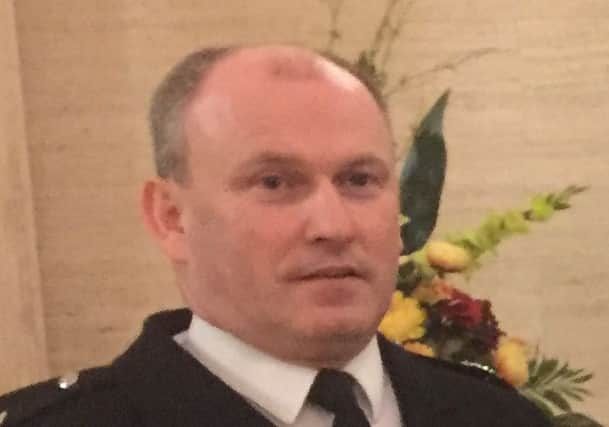Fire crews to attend medical call-outs due to '˜lack of ambulances'


Dermot Rooney, regional chairman of the Province’s branch of the Fire Brigades Union (FBU), said plans are in motion for a trial scheme which would see fire crews dispatched in conjunction with ambulance crews.
He said that, essentially, the idea is that if a fire engine and ambulance are both sent to the same incident, the fire crew may arrive first because the ambulance crew may be too busy elsewhere.
Advertisement
Hide AdAdvertisement
Hide AdMr Rooney said that the scheme looks set to be “good news for the public”.
However, he added that it “wouldn’t be happening if the ambulance service was properly resourced”.
He said that fire crews would only be sent to incidents if an ambulance crew is also dispatched.
The fire crew would not take a patient to hospital – that would remain the job of the ambulance crew.
Advertisement
Hide AdAdvertisement
Hide AdHowever, they could perform CPR, use a defibrillator, or otherwise try to stabilise the patient before the ambulance crew arrives.
He gave the following example of how the scheme may work: “Say someone in Lurgan town centre on Friday night was to be found along the street with a cardiac event – say they took a heart attack, right?
“Someone dials 999. The ambulance service will make their normal attendance to that.
“But, the Fire and Rescue Service will also be informed, and we would attend as well.”
It would be a matter of “whoever gets there first”.
Advertisement
Hide AdAdvertisement
Hide AdThis scheme would “speed up the amount of time a defib would be applied to someone like that”.
He said some rural parts of the UK have seen similar schemes in operation for years, and pilot schemes are now under consideration in large English cities too.
He said the idea is also “much the same as what happens in America”.
He added: “It won’t change the response from the Northern Ireland Ambulance Service, that would be our view. It would enhance the response to the public.
Advertisement
Hide AdAdvertisement
Hide Ad“We are currently training people in advance of a trial which will take place in the Lurgan area to start with.”
They are being trained in “a higher level of first aid”, including greater use of defibrillators.
He said that it is envisaged such a trial would take place in September in Lurgan – although the Department of Health said more work still needs to be done before the launch, and the ambulance service said only that a meeting is scheduled for September.
“We know that there’s a national issue about the availability of the ambulance service,” said Mr Rooney.
Advertisement
Hide AdAdvertisement
Hide Ad“There’s a whole issue across the whole of the UK about ambulance service attending times.
“There’s not enough of them.
“And you’ll be aware there is an issue with Northern Ireland Ambulance Service at the weekends, and the use of private medical cover and all this sort of stuff, private ambulances.
“It’s to fill a gap in that cover.”
He said the FBU is only agreeing to a pilot at this stage, because it is not clear who would shoulder the cost, and how much it might eat into the fire brigade’s budget.
He added: “Our agreement is contingent on not running the ambulance service down any further.
Advertisement
Hide AdAdvertisement
Hide Ad“So what we wouldn’t want would be for us to take part in Lurgan and for the ambulance service to suddenly decide they didn’t need an ambulance in Lurgan any more because firefighters were doing it.”
Mr Rooney acknowledged that this in turn could have a knock-on effect on fire cover.
“When the firefighters in Lurgan are doing that, they’re not available for emergency calls – there’ll be a debate to be had around that as well.
“We’ll have to put arrangements in place in terms of backing up fire calls.”
EMERGENCY FIGURES
Advertisement
Hide AdAdvertisement
Hide AdThere are just over 1,800 full and part-time firefighters in NI.
They operate out of 68 fire stations, most of which are part-time ones.
The ambulance service meanwhile has more than 1,100 staff, operating from 61 stations and deployment points.
The fire brigade sent crews out to 22,781 incidents in 2014/15 – a figure which had been declining since 2010, along with the overall number of calls.
Advertisement
Hide AdAdvertisement
Hide AdIn 2014/15, the ambulance service responded to well over 55,000 “category A” calls alone (about potentially life-threatening incidents) – a figure which had grown every year for the preceding five years.
Meanwhile, the ambulance service’s ability to hit its eight-minute response target for such calls has fallen steadily since 2011.
At that time, roughly 73 per cent of such calls were responded to within that timeframe.
By 2014/15, the figure had fallen to about 58 per cent.